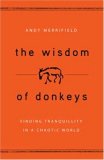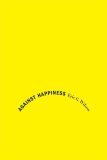‘Painting Chinese’ by Herbert Kohl
May 24, 2008
 Noted educator Herbert Kohl writes a short, sweet memoir about his study of Chinese painting in Painting Chinese: A Lifelong Teacher Gains the Wisdom of Youth.
Noted educator Herbert Kohl writes a short, sweet memoir about his study of Chinese painting in Painting Chinese: A Lifelong Teacher Gains the Wisdom of Youth.
Nearing the age of seventy, during a time of transition in his life, Kohl decides to take up the study of Chinese painting, seemingly on a whim, and finds himself in a class at the Joseph Fine Arts School working alongside five- to seven-year-old Chinese and Chinese American children. Kohl’s background as an educator informs his observations of himself as a pupil as well as his appreciation of the traditional pedagogical method of the school, based on “creative copying” of classical paintings. The students work individually, all copying different paintings under the guidance of the teacher, so there is no sense of competition. Kohl observes:
As my lessons went on and I had a chance to observe the children over time, I could see that they were developing self-discipline, confidence, pleasure in their own achievements, and, most of all, patience with their own learning. Ironically, by abandoning competition in this gentle and encouraging environment, they were acquiring strengths and skills that would serve them well in a competitive learning environment, where self-discipline and focused work are the essence of academic success. It even occurred to me that Joseph’s way of teaching, if was widespread through informal learning experiences in the Chinese community, might partially account for the amazing success of Chinese and Chinese American students in schools. (p. 30)
Kohl’s painting lessons also prompt some forays into Chinese culture, as he explores legends of the Monkey King and the meaning of bamboo. Later he discovers “…how much my perception of nature had been transformed by painting Chinese. I looked at the ocean as a force, alive and active. Trees had become individual beings…. I let the environment take hold of me rather than just walk through it.” (p. 143)
Adjusting to old age by “growing up again” is a frequent theme, as Kohl reflects on the experience:
Painting Chinese provided me with a condensed second childhood, one I could grow through painlessly, stage by stage… to become settled into old age. Traveling from monkeys to hermit landscapes led me to understand the contradictions that drove my life…. The sensibility of the Chinese painting and poetry that moves me enhances those contradictions: water versus rock, storm versus calm, war versus tranquility, solitude versus companionship, love versus enmity. One landscape can hold all those opposites in tension, explicitly or by implication. … Painting Chinese and my brush with the Tao has taught me that these contradictions are necessary and welcome. There is no final resolution to the contradictions, to the balance between the positive and the negative and the striving toward wholeness. As Monkey King said, the holy books and all the sacred documents are and will forever remain incomplete. (p. 158)





